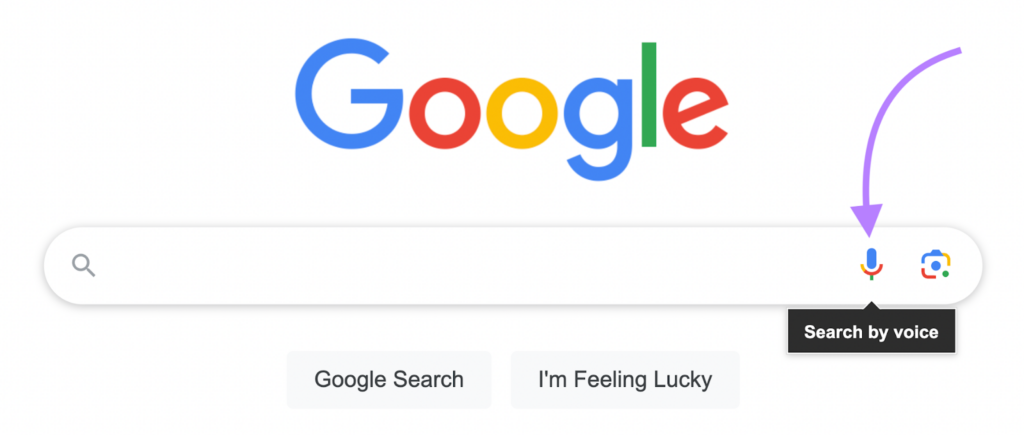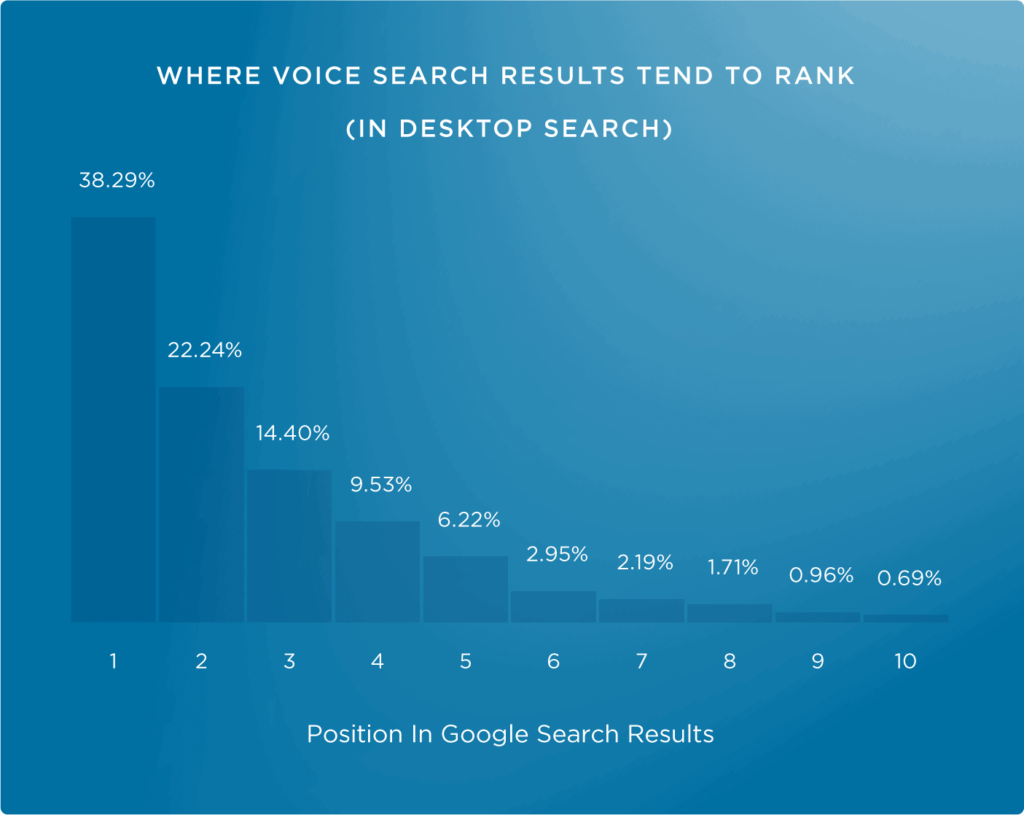In the last five years, we have seen a 158.46% increase in the number of voice assistants being used worldwide. Digital assistants such as Alexa (Amazon), Siri (Apple) and Cortana (Microsoft) are great for playing music and setting alarms and reminders, but are also being increasingly used by consumers to find information.
Let’s delve into the world of voice search and uncover how it can transform your digital presence.
What is voice search?
Voice search is the act of asking a question aloud to a virtual assistant, for example, “Alexa, what’s the weather in Sheffield like tomorrow?” Voice recognition technology converts the spoken words into text, then the search engine (e.g. Google) generates the relevant results.
According to SEO Expert, 58% of users discover local businesses through voice search – This means it’s now more important than ever to invest in voice search optimisation for your business.

What is voice search optimisation?
Voice search SEO involves enhancing your digital presence so you appear in voice search results. As a business, one of your key marketing goals is to be recognised by voice assistants as the top search result to be read aloud. Optimising your website for voice search presents a huge opportunity and increases your chances of reaching customers.
How is voice search SEO different from text optimisation?
When conducting a voice search, you’re more likely to ask a question using natural language, instead of typing in a series of keywords. When we talk to voice assistants, we speak as though we’re talking to real people, for instance, we’re more likely to ask, “How do I make sesame tofu?” rather than “Sesame tofu recipes.” Voice search queries are longer and more conversational, usually formulated as questions.
What are the benefits of voice search SEO?
Build trust with audiences
By providing users with helpful information, you can position your business as authoritative and trustworthy.
Enhance user experience
As you’ll see below, optimising your website for voice search optimisation involves implementing SEO best practices (website speed, targeted keywords, mobile friendly etc), ultimately leading to a better user experience.
Increase brand awareness
Optimising your content for voice search will boost the number of results you appear in. Having your content shared by a digital assistant will lead people to your brand.

How can I appear in voice search results?
Optimise your content for voice search
Create online content which answers frequently asked questions about topics relevant to your business, e.g. “How can I keep up with social media trends?” Make sure your answers are around 30 words long, keeping them specific so you have less competition in search engines, e.g. “digital marketing agencies in Sheffield.”
You can embed these answers into your website’s long-form content, including blogs and pages, but also in short-form content by creating FAQ pages.
Prioritise Local SEO
By shifting your focus to local SEO, you can reach audiences on a regional level. Optimising your Google My Business profile and ensuring all your details are up to date is crucial to appear in relevant search results. For example, check your business name, address and contact information are all correct. It’s also important to make sure your business is listed in the correcting category, e.g. marketing service or retailer.
Implement SEO best practices
When trying to appear in searches, it’s so important to optimise your website for mobile. According to Google, 27% of the global population is using voice search on smartphones. User experience is integral to a good website and also helps you factor into rankings.
It’s also crucial to ensure your website’s response time is up to scratch as not only does this improve user experience, but it’s another ranking factor when it comes to appearing in voice search results.
You can also upgrade your site’s UX by incorporating targeted keywords. This can include long-tail keywords. By this, we mean highly specific queries with lower search volumes, for example, ‘design agencies near me.’ You may also consider integrating question keywords into your content such as what, when, where, how and why.

Conclusion
It’s safe to say voice search is here to stay, with advancements in AI making it even more intuitive and essential in our daily routine.
So, what are you waiting for?



